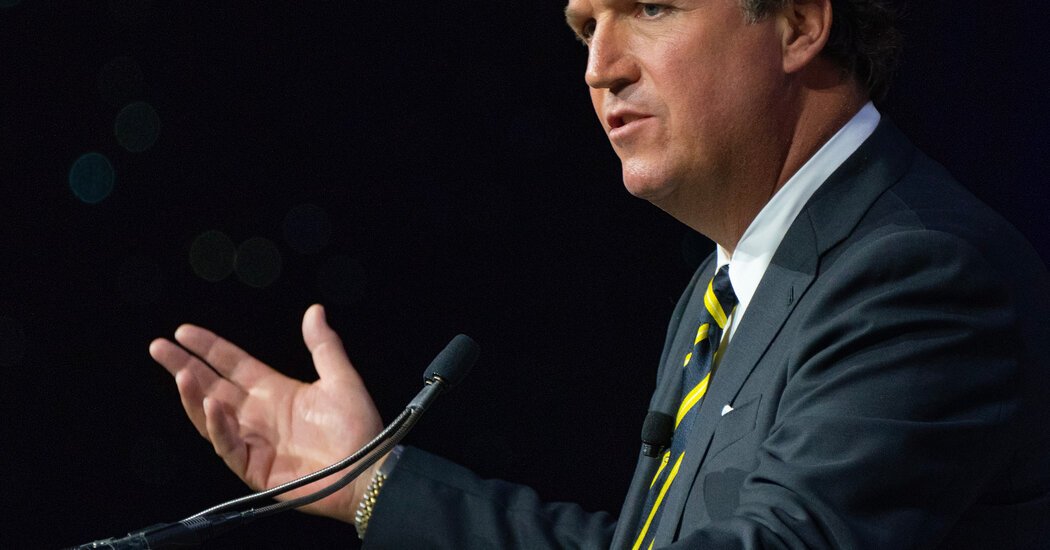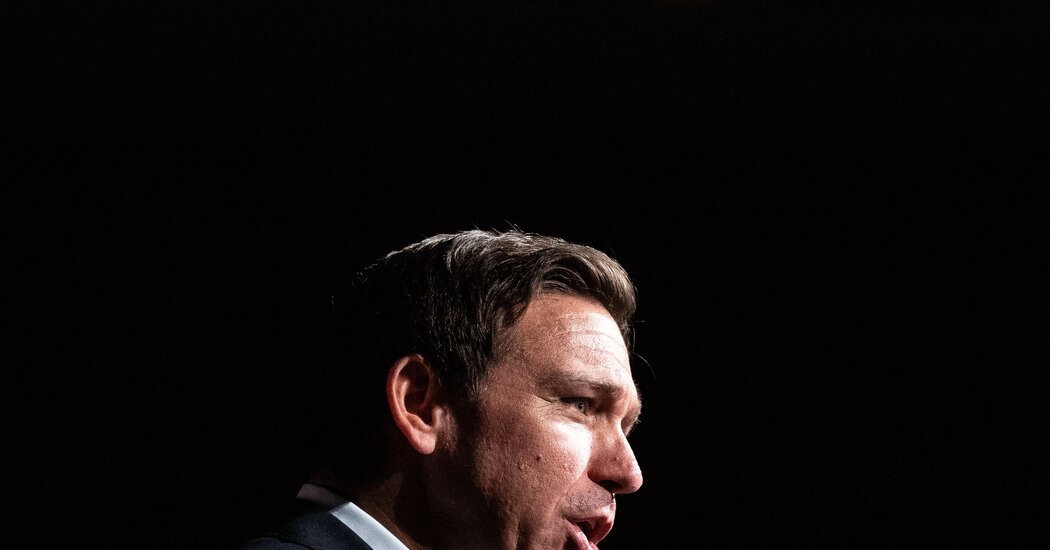For years, the Fox News host Tucker Carlson has faced criticisms of his amplification of racist and anti-immigrant ideas. But those issues seemed to have little to do with his demise.
Instead, a growing list of controversies related to Carlson’s conduct on and off the air had begun to aggravate Fox News executives, and the network abruptly announced his departure yesterday.
Network leaders and contributors had complained, and some quit, over Carlson’s misleading coverage of the Jan. 6 attacks, in which he depicted rioters as “mostly peaceful” onlookers. His coverage of 2020 election conspiracy theories was part of Dominion Voting Systems’ lawsuit against Fox, which the network settled last week. Carlson had also privately denigrated Fox executives, saying they had cost the network credibility by allowing it to call President Biden’s election victory, as The Washington Post reported.
And a former producer recently accused Carlson in a lawsuit of overseeing a misogynistic and discriminatory workplace. Fox has disputed her claims.
As one of the top hosts on the most watched cable news network, Carlson played an outsize role in conservative politics. Today’s newsletter will look at Carlson’s influence and what his exit means for Fox News.
A big audience
Carlson took over Fox News’s prized 8 p.m. slot in 2017 and increased its already-high ratings, quickly becoming a fixture on the right-wing network and in conservative politics.
How? Carlson tapped into white viewers’ fears over the country’s changing racial demographics, which fueled Donald Trump’s rise in the 2016 election. He would regularly focus on the notion of the “great replacement,” a racist conspiracy theory that claims elites are importing supposedly obedient immigrants to disempower native-born Americans. In 2018, Carlson argued that hordes of immigrants were making America “poorer and dirtier.”
Carlson often highlighted local news stories but twisted them to make broader claims about Americans losing control of their country. In one segment in 2017, he claimed “Gypsies” were causing chaos in a small Pennsylvania town, urinating and defecating in the streets.
“The message of these segments was always the same: You and your way of life are under attack, and the people doing the attacking look different and have different values than you do,” my colleague Nicholas Confessore, who covered Carlson’s rise for The Times, told me yesterday. “Carlson reassured viewers that their discomfort was reasonable — that they didn’t have to feel bad about their fears and worries.”
Carlson did so by embracing Trumpism but not Trump himself. The approach was partly personal. In private texts, Carlson said of Trump, “I hate him passionately.” It also helped Carlson differentiate himself from other Fox News hosts, Nicholas said. Because they aligned themselves closely with Trump, the hosts Sean Hannity and Laura Ingraham would often have to come to his defense when Trump said something outrageous. Carlson tried to avoid those pitfalls by focusing on the underlying message instead of Trump as the public face of it.
Fox’s predominantly white audience embraced Carlson’s approach, and he drew more than three million viewers a night, regularly making his show No. 1 or No. 2 at the network. And although accusations of bigotry and falsehoods prompted sponsors to flee Fox, Carlson’s show increased its ad revenue because its audience was so large.
Carlson has not said what he’ll do next. But without that big audience, he probably won’t be as influential.
Uncertain future
Fox News said it would rotate hosts in its 8 p.m. slot until it could find a permanent replacement. At first glance, this seems bad for the network: Not only did it lose one of its biggest stars, but it has no replacement lined up. And the announcement comes at a time when Fox has already faced months of bad publicity, and it just agreed to a $787.5 million settlement over Dominion’s lawsuit.
But Fox has overcome similar challenges with its hosts before. Carlson himself replaced Bill O’Reilly, who was once the network’s most popular host, and not only maintained O’Reilly’s ratings but at times surpassed them. That experience may have led Fox to believe that the network carries more sway over its viewers than individual hosts do.
The former Fox executive Roger Ailes used to occasionally bench his prime time stars for a night to show them that the ratings stayed high when they were gone — demonstrating that it was Fox that made them big, Nicholas noted. “I suspect the audience loyalty to Fox is probably greater than the audience loyalty to any particular Fox star,” he added.
For more
THE LATEST NEWS
Politics
Other Big Stories
Opinions
Addiction isn’t as simple as a lack of control, Maia Szalavitz argues. Understanding its effects could help make drug policy more useful.
The Chinese government’s attempt to rewrite Hong Kong’s fight for independence is an act of repression, Louisa Lim argues.
And here are columns by Maureen Dowd on Ron DeSantis and by Paul Krugman on NIMBYism.
A pop song on trial
Did Ed Sheeran copy his Grammy-winning ballad “Thinking Out Loud” from Marvin Gaye’s soul classic “Let’s Get It On”? The question is at the center of a copyright trial that began yesterday in federal court in Manhattan.
Because of a quirk of music copyrights, the case rests primarily on the songs’ chord progressions, which are nearly identical, as this video comparison shows. But Sheeran’s lawyers have argued that the chords are common in pop music — including in songs by artists who used them before Gaye and Ed Townsend, who collaborated with him on “Let’s Get It On,” did.




